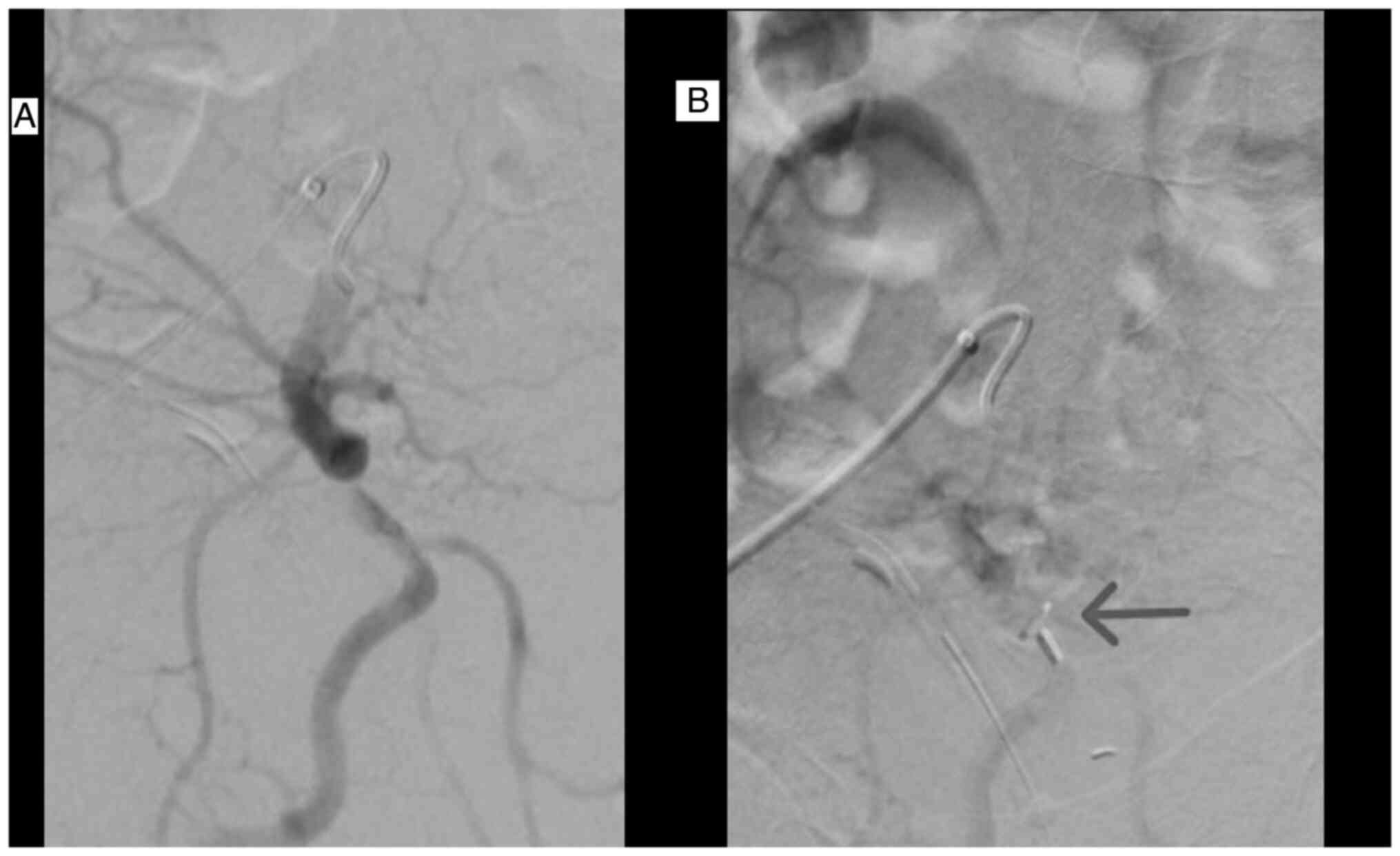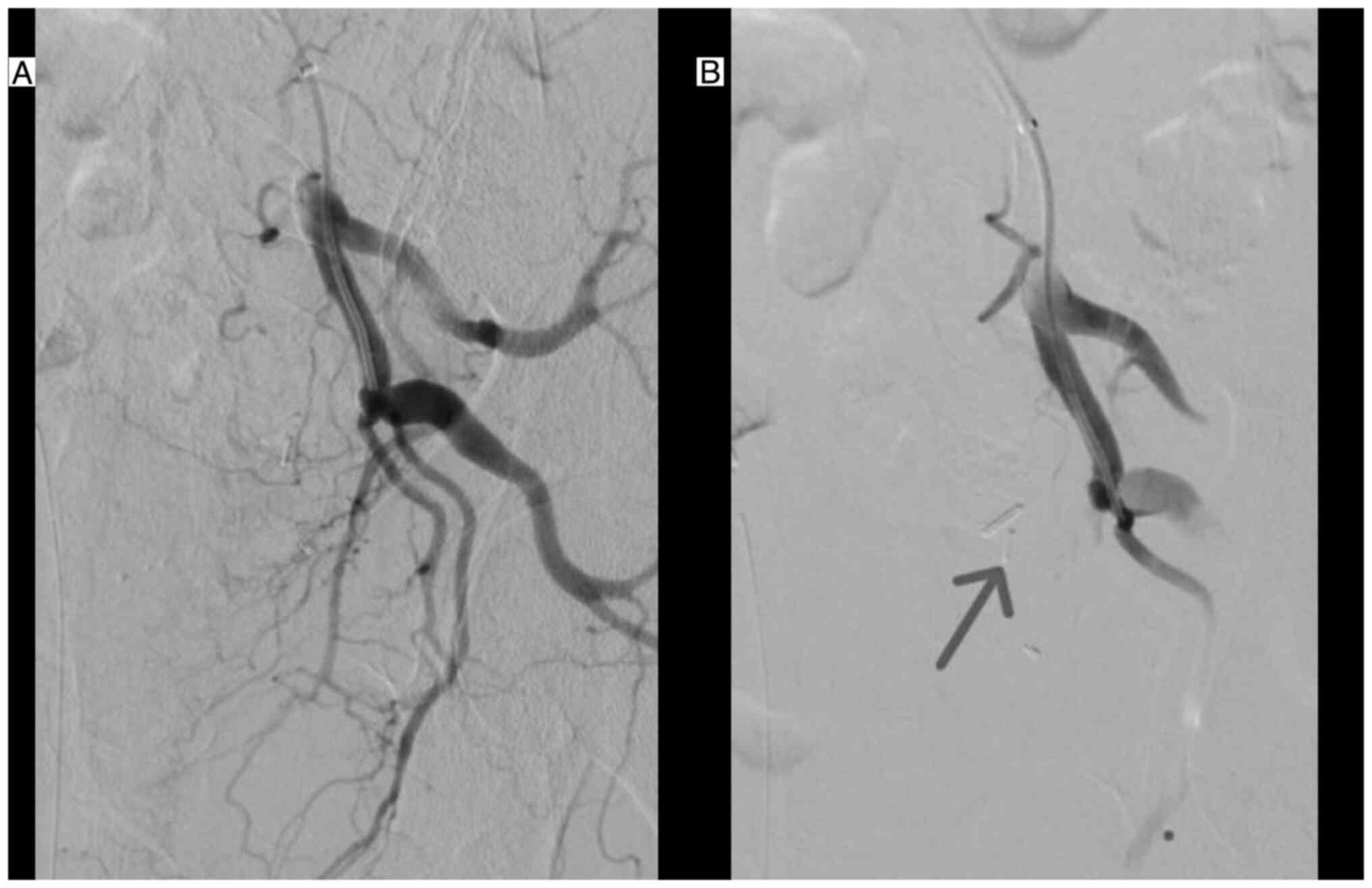Spandidos Publications style
Kozyrakis D, Konstantinopoulos V, Papaspyridakos P, Zarkadas A, Bozios D, Karmogiannis A, Haronis G, Konomi A, Kallinikas G, Safioleas K, Safioleas K, et al: Prostate artery embolization as an effective treatment for clinically significant prostate cancer‑related hemorrhage: A case report<strong><br /></strong>. Exp Ther Med 29: 26, 2025.
APA
Kozyrakis, D., Konstantinopoulos, V., Papaspyridakos, P., Zarkadas, A., Bozios, D., Karmogiannis, A. ... Filios, P. (2025). Prostate artery embolization as an effective treatment for clinically significant prostate cancer‑related hemorrhage: A case report<strong><br /></strong>. Experimental and Therapeutic Medicine, 29, 26. https://doi.org/10.3892/etm.2024.12776
MLA
Kozyrakis, D., Konstantinopoulos, V., Papaspyridakos, P., Zarkadas, A., Bozios, D., Karmogiannis, A., Haronis, G., Konomi, A., Kallinikas, G., Safioleas, K., Mytiliniou, D., Filios, A., Rodinos, E., Filios, P."Prostate artery embolization as an effective treatment for clinically significant prostate cancer‑related hemorrhage: A case report<strong><br /></strong>". Experimental and Therapeutic Medicine 29.2 (2025): 26.
Chicago
Kozyrakis, D., Konstantinopoulos, V., Papaspyridakos, P., Zarkadas, A., Bozios, D., Karmogiannis, A., Haronis, G., Konomi, A., Kallinikas, G., Safioleas, K., Mytiliniou, D., Filios, A., Rodinos, E., Filios, P."Prostate artery embolization as an effective treatment for clinically significant prostate cancer‑related hemorrhage: A case report<strong><br /></strong>". Experimental and Therapeutic Medicine 29, no. 2 (2025): 26. https://doi.org/10.3892/etm.2024.12776
















